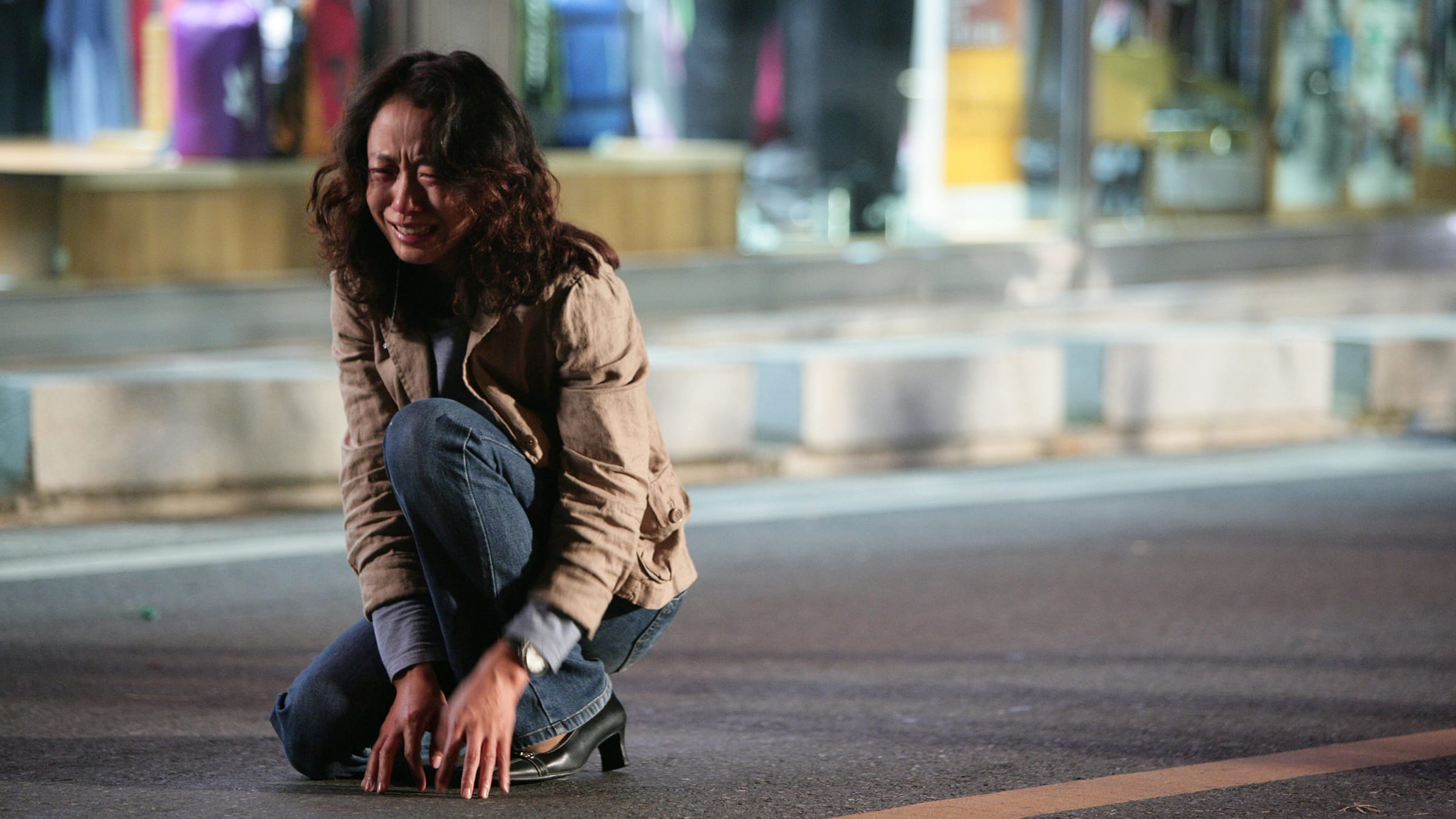Shin-ae is a glass-half-full type, we assume, not one of those people predisposed to sadness, not someone who easily crumbles. But for all her good intentions, she is also a walking harbinger of death. At least that’s how her in-laws treat her after Jun is kidnapped, held for ransom, and killed. A few family members howl in agony at the funeral, but Shin-ae has the faraway, sunken-eyed expression of someone with no tears left to cry, a look her mother-in-law construes as insufficiently grief-stricken. It may be the most cringe-inducing moment in this very grim film, because it evokes a truth about human behavior movies rarely ask us to consider: that as much as we may think of crying as an involuntary reaction that bubbles up from our innermost depths, it is just as easily perceived by others as affectation, assessed as performance. Is the crier’s crying credible, or commensurate to its cause? Is it done with self-forgetting abandon or as a power play to forestall the moral judgments of onlookers? And what are we to think when there aren’t any tears to measure? It’s cruel how often the capacity for crying eludes us, sometimes right at the instant when we want to be persuading others—and ourselves—that we do feel something.
After the funeral scene, the rest of Secret Sunshine plays out as one woman’s descent into purgatory, an arc that places Jeon Do-yeon’s exposed nerve of a performance in the company of Gena Rowlands in A Woman Under the Influence, Isabelle Adjani in Possession, and so many other great roles that flirt with ideas of female hysteria.But what makes Jeon’s work here so satisfying is the matter-of-fact way she and Lee navigate Shin-ae’s whiplash moods. Even as it crescendos into tragedy, the movie keeps its grasp of everyday banality. Shin-ae isn’t locked off into an impenetrable state of madness; just as soon as the dust settles, she has to try and function as a member of society. There are glimpses of the way forward. A doggishly loyal mechanic named Jong-chan (Song Kang-ho), often hovering in the background of scenes, suggests the possibility of a playful rom-com resolution. And for her part, Shin-ae, a problem solver by nature, latches onto Christianity as a practical path to healing. Not long before, her mother-in-law had been demanding to see evidence of inconsolable anguish. But now everything around Shin-ae beckons her back to normalcy, that world where grown-ups don’t cry.
But not so fast. Jeon has given Shin-ae a rebel streak, and time and again she leans into it, that part of the character that says if I must fall apart, I will do so spectacularly. You want crying? she seems to tell us, I’ll show you crying. And in one of the film’s most emotionally complex scenes, excerpted in the video below, she opens up the floodgates. Shin-ae has walked, as if in a trance, into a church service, Jong-chan following unobtrusively a few paces behind her. Minutes pass, and as the camera surveys the congregation singing, swaying, and surrendering to the spirit, we start to hear throaty, coughed-up wails. Jeon plays this scene as a marathon of histrionic flourishes: breathless heaving and hacking, back-and-forth rocking, pawing at her throat and chest, veins bulging from neck and forehead. No doubt the pain is authentic; certainly it’s more than warranted. But this is also crying that revels in being seen and heard, crying that requires a spectator (a role that Jong-chan, throughout the film, humbly fulfills, and that God seems to repeatedly decline). Flamboyant, indulgent, and just a bit socially inappropriate, this outburst is Shin-ae’s perfectly useless revenge—and it’s a mark of Jeon’s brilliance that we can tell she’s having fun with it.
Few performances have so bitterly captured what it looks like to be tangled up in emotion while also, to some degree, manipulating it for an audience, dialing it up for maximum impact, luxuriating in that moment when the tears finally do come. Jeon shows us how unnerving crying—that most private, hidden, policed, and potentially shameful of expressions—can be when taken out in public, how defiant and perverse its demands for attention really are. And at the same time how close to sacred, how much like a spiritual possession. In this devastating scene, Jeon takes us right up to the line where rapture and tantrum meet.

